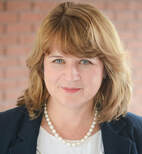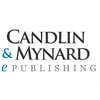Teaching English to Young Learners Series
Series Editor
Annamaria Pinter is an Associate Professor at the Centre for Applied Linguistics at the University of Warwick, UK. She lectures at MA and EdD levels and supervises theses in the area of teaching languages to children. Her particular interests include task based learning, socio-cultural theory and materials design. She has been involved in teacher development programmes both at Warwick and overseas. She has published widely in the area of teaching English to young learners. She is the author of Teaching Young Language Learners Oxford Handbooks for Language Teachers, Oxford University Press (2017, 2nd ed.) and Children Learning Second Languages, Palgrave Macmillan (2011). Titles in the Series
About the SeriesOverview
The "Teaching English to Young Learners" series is designed for both new and experienced teachers who are involved with teaching languages to young learners. Each ebook is theoretically grounded, yet offers the reader numerous practical applications for the language classroom. The books also encourage teachers to get involved in their own action research projects in order to further support their young learners An increasing number of children worldwide take up English as a second or foreign language in formal pre-school and primary/elementary school contexts. There is also an increasing demand for qualified teachers specialising in EYL. There are vast differences between different contexts ranging from the well-equipped, small group based classes to large under-resources classes where children do not have access to books or other resources and teachers are often placed in classrooms without qualifications. It is important therefore to respond to the needs of learners and teachers in these contexts by focussing on key trends and key priorities that cut across different contexts internationally. This ebook series will be unique in its approach which aims to explore key/ priority topics in some depth rather than just offer a general overview of EYL classrooms and EYL issues. A rich variety of titles will ensure that language educators and researchers interested in EYL can explore topics that are directly relevant and informative in terms of their current and future needs and interests. Target audiences • Language educators, classroom teachers and researchers with an interest in children of all ages; • Students who wish to specialise in a specific area within teaching languages to younger learners; • Experienced researchers who want an accessible update on a specific area of teaching English to young learners; • Language teachers seeking professional development and ideas for classroom research; Key features Each ebook will: • Be written by an expert in the field with expertise both in research and classroom practice; • Link theory/research and classroom practice; • Contain further resources to help readers to develop their teaching and research • Point the reader towards potential areas for practice and research; • Aim to be about 60,000 words in length. Titles under consideration • Storyline and stories in TEYL • Large classes and autonomy in TEYL • Approaches to focus on form in TEYL • Approaches to cross-curricular work in TEYL • Cultural awareness in TEYL • Assessment in TEYL Structure of the ebooks in the series The books will each follow a similar structure and include 5 distinct sections: 1. Background/ brief overview or map of the area/ topic; 2. Why is this a key area within TEYL? An international perspective citing evidence in relation to the importance of the topic; current debates and recent developments 3. How does research inform practice and how does practice impact on research? 4. Ideas for future projects (from small to larger scale); and ideas for sample lesson plans; 5. Resource bank of relevant materials and sources of information Above all, we are aiming for an interactive and engaging style of writing, bringing the reader in to the issues or teaching and research with young learners of English. Like all the Candlin & Mynard ebooks they are there to help readers encourage, exploreand enable their thinking and practice. Prospective authors should contact us giving a brief overview of their focus area. Depending on the scope, we will then provide a proposal form and solicit further details and sample material. Details and proposal form
| |||||||

|
|